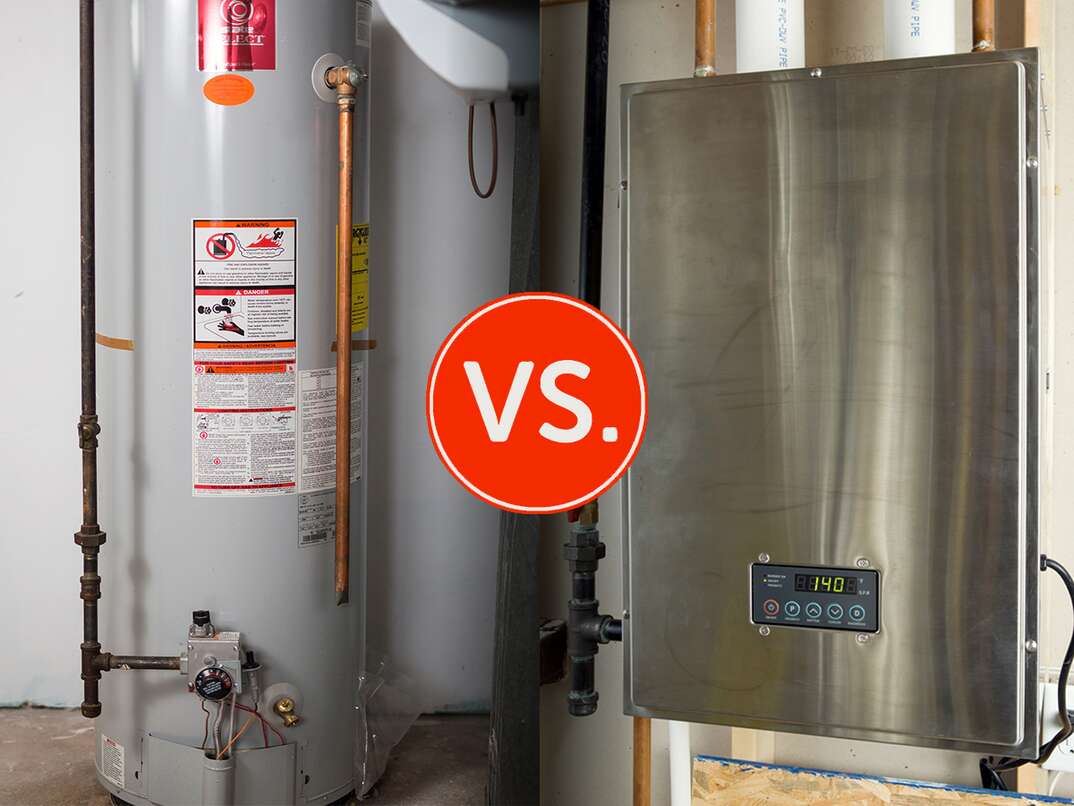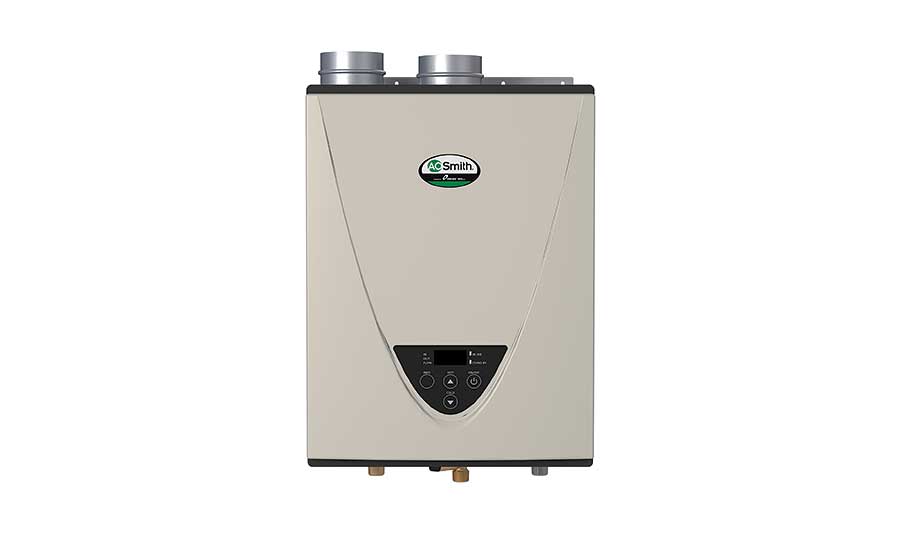Picking Performance: Tankless vs Traditional Tank Water Heaters
Wiki Article
The Ultimate Overview to Picking the Right Hot Water Heater: Debunking Tankless and Storage Tank Options for Plumbing Success
Are you struggling to select the right water heating system for your pipes needs? Look no more! In this supreme guide, we will debunk the alternatives of tankless and storage tank hot water heater, helping you make a notified decision. We'll contrast power efficiency, cost considerations, room demands, and efficiency to ensure your plumbing success. Say farewell to complication and hello there to the perfect water heater for you!Tankless Vs. Tank: Recognizing the Basics
Tankless water heating units, also recognized as on-demand water heating units, give warm water as required, without the usage of a storage tank. On the other hand, tank water heaters shop and warmth a specific quantity of water in a container, ready for use whenever required.One key advantage of tankless water heaters is their space-saving design. In addition, tankless water heating units are extra energy-efficient than standard container heating units due to the fact that they only warm water when it is required.
Nevertheless, tankless hot water heater may have restrictions in regards to the amount of warm water they can give concurrently. If you have a large home with numerous warm water demands, such as running a shower and dishwashing machine simultaneously, a tankless system might battle to keep up. In this situation, a container water heater with its bigger storage space capacity may be a much better alternative.
Inevitably, the choice between tankless and storage tank hot water heater depends on your particular requirements and preferences. Tankless vs. Traditional Tank Water Heaters. Think about variables such as room availability, warm water demands, and power performance to make a notified choice
Energy Performance: Comparing Tankless and Container Options
To figure out which water heating system choice is more energy effective, contrast the power use of tankless and container water heating units. Tankless water heaters, also known as on-demand water heating units, offer hot water only when it is needed. This indicates that they do not continually warm and store water like standard storage tank heating units. Consequently, tankless water heating units can be much more energy efficient since they eliminate standby warmth loss. When warmth gets away from the storage tank and needs the water heater to continually reheat the water to keep the preferred temperature, standby warmth loss happens. On the other hand, tank water heaters shop and regularly warm a large quantity of water, also when it is not being used. This constant home heating results in power wastefulness and greater utility bills. By changing to a tankless hot water heater, you can possibly decrease your power intake and save cash over time. It is essential to keep in mind that the energy performance of both tankless and container water heating units can differ depending upon factors such as the size of the unit, the amount of warm water required, and the environment in which you live.Price Considerations: Examining the Preliminary Investment and Long-Term Financial Savings
To assess the preliminary financial investment and long-term savings of different hot water heater choices, take into consideration the price aspects related to both tankless and container hot water heater. Tankless water heaters tend to have a higher upfront cost contrasted to storage tank water heating systems when it comes to the first financial investment. This is due to the fact that tankless devices call for more sophisticated modern technology and installment, consisting of specialized airing vent and electric demands. On the other hand, tank hot water heater are generally more economical to purchase and mount.Nonetheless, when checking out long-lasting savings, tankless water heating systems frequently prevail. This is because they are more energy-efficient, just heating water when it is needed, as opposed to continuously keeping a big storage tank of water warm. Because of this, tankless hot water heater can help minimize power intake and lower utility bills gradually. In addition, tankless units have a longer life expectancy compared to container hot water heater, which indicates less substitutes and upkeep prices in the long run.
It is necessary to note that the cost factors to consider will certainly vary depending on aspects such as the size of your family, warm water usage, and regional energy prices. It is suggested to seek advice from a professional plumbing to figure out one of the most affordable alternative for your specific requirements and budget.

Area Demands: Reviewing the Size and Setup Aspects
When it comes to space, tankless water heaters are usually extra compact than typical storage tank water heating systems. As an outcome, tankless water heating units can be mounted on wall surfaces, inside cupboards, or in other tight areas, making them a wonderful option for those with limited area in their homes.On the other hand, container water heaters call for a considerable quantity of room to accommodate the size of the tank. The size of the storage tank depends on the capacity of the water heater, which is determined in gallons.
Along with the physical space needs, you must additionally consider the installment variables. Tankless hot water heater may require modifications to your plumbing system, such as upgrading the gas line or including extra electric circuits. Container water heating units, on the other hand, might need a larger space for installation right here and might need extra ventilation to stop getting too hot.
Performance and Upkeep: Checking Out Longevity and Solution Needs
When it comes to performance and upkeep, it is crucial to check out the longevity and solution needs of both tankless and container water heating units. These systems site have a longer life expectancy contrasted to typical container water heating units, which generally last around 10-15 years.In terms of service demands, tankless water heating systems need much less maintenance compared to tank water heating systems. Tankless devices don't have a storage tank, which suggests there is no threat of container leak or deterioration. They likewise do not require routine flushing like storage tank hot water heater do. However, it is still vital to arrange annual maintenance for tankless water heating systems to make certain optimum efficiency and avoid any kind of possible problems. This upkeep commonly involves descaling the heat exchanger and inspecting for any kind of indicators of wear or damage.
On the various other hand, tank water heating systems call for even more maintenance. Regular inspection and maintenance are essential to keep tank water heating systems running efficiently and to avoid any kind of costly repair work or substitutes.
Final Thought

Tankless water heating units, also recognized as on-demand water heaters, give hot water as needed, without the usage of a storage tank. Furthermore, tankless water heaters are a lot more energy-efficient than traditional storage tank heating units since they only heat water when it is needed.To determine which water heater choice is much more power effective, compare the power usage of tankless and tank water heating systems. Tankless water heaters, additionally understood as on-demand water heating systems, supply warm water just when it is required. When it comes to the preliminary financial investment, tankless water heating systems tend to have a greater upfront price contrasted to tank water heaters.
Report this wiki page